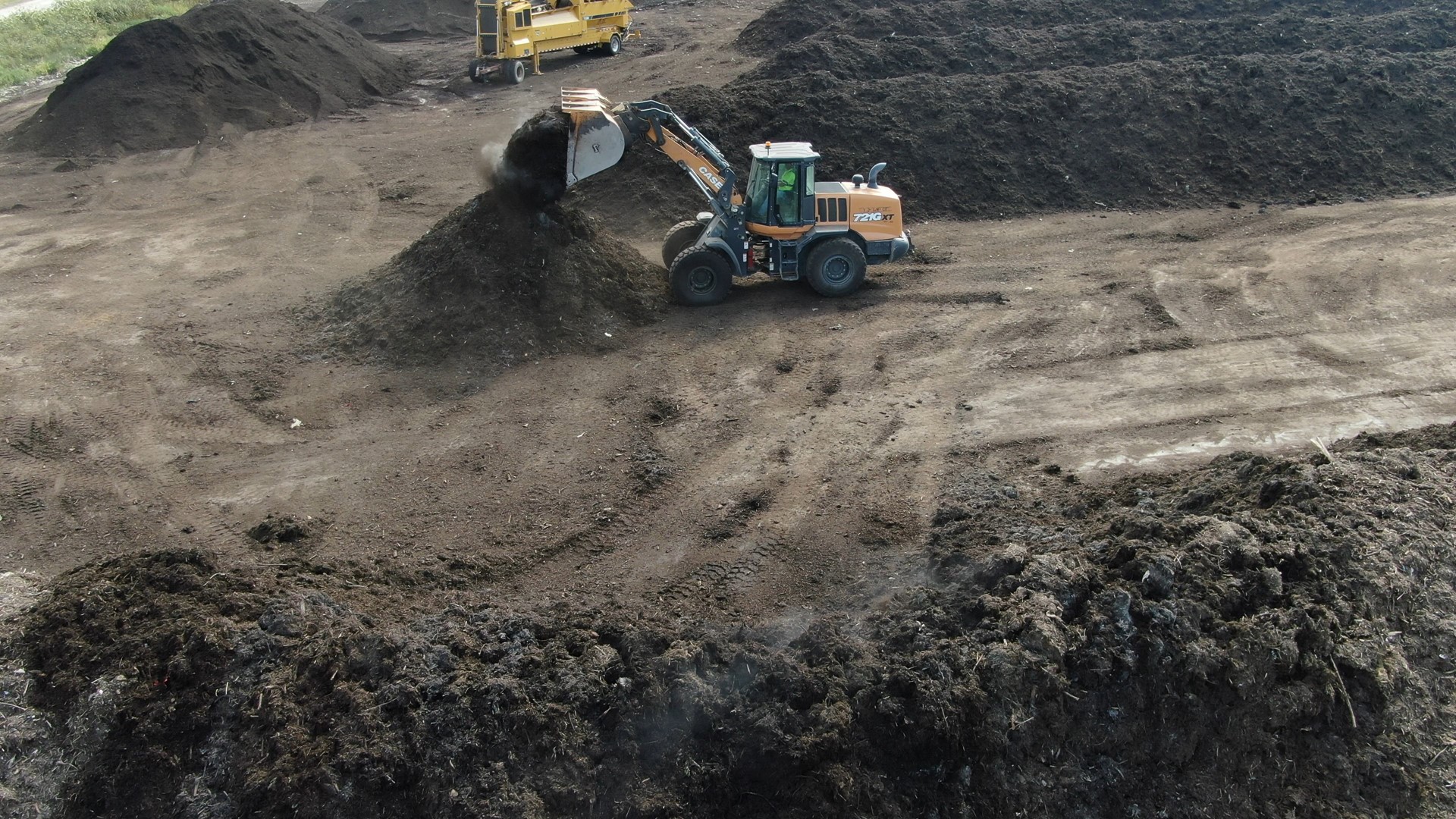IOWA CITY, Iowa — Food scraps make up 20% of Iowa's waste stream, according to the most recent estimates. That means Iowans are sending an estimated 556,313 tons of food to landfills each year.
That food waste takes up space in the landfill and generates the greenhouse gas methane.
It's the equivalent to greenhouse gas emissions from more than 60,000 gas-powered passenger vehicles driven for one year and the carbon dioxide emissions from approximately 55,000 homes' electricity use for one year.
One way to divert the food waste from the landfill is to compost it, but the current composting infrastructure in the state isn't robust enough.
The Iowa City Landfill and Recycling Center is among two sites in the state that is able to accept food scraps and compost at more than two tons a week.
The Iowa City landfill began collecting food scraps in the late 2000s after a group of University of Iowa students requested a food scrap compost program.
"It went really well, we had a separate compost pile just for that material which ended up being a higher quality compost because there was more nitrogen because of the food waste," said Jen Jordan, the resource management superintendent in Iowa City.
Now, people living in Iowa City can mix food scraps and yard waste together in their curbside bins after the project was launched in 2017.
"About half of our customers have those (bins)," Jordan said. "I don't think half of our curbside customers actually do food scrap composting, maybe a quarter, but I'm really totally guessing. We serve about 16,500 households, so if we have 4,000 households participate in that program, even on a halfway regular basis, that's a huge improvement over those materials going into the landfill."
The food scrap and yard waste material gets ground up and crews will sift it and turn it so it cooks through evenly. Staff will take the compost piles' temperature twice a week, usually ranging from 150-160°. The heat makes it so microorganisms can break down the material and kill disease pathogens.
"The bugs and microbes and bacteria, they're going to be eating that material and they produce carbon dioxide, water vapor, moisture and heat," Jordan said. "It's basically a vitamin for the soil. That's all those nutrients are breaking down into that nutrient. People come and pick up this end product to put on gardens."
It takes about a year to make the compost, and the Iowa City landfill makes anywhere from 2,500 to 4,000 tons of compost per year.
Adding food scraps to composting programs can be a challenge, Jordan said. The Iowa DNR has more regulations sites have to follow.
"The regulations to do food waste composting go from some pretty basic stuff from yard waste to making sure that we're taking the temperatures twice a week for the compost, we have to grind it twice a week, we have to make sure it has the right moisture and oxygen content," Jordan said. "So it's a little more involved than just yard waste composting."
There are more regulations for sites that accept more than two tons of waste a week.
Jennifer Trent is trying to change some of those regulations. She's the program manager at the Iowa Waste Reduction Center and the vice president of the U.S. Composting Council.
There are seven permitted sites in Iowa, but Iowa City and Cedar Rapids are the only two that accept food waste. Sites that have less than two tons are considered exempt from some regulations, Trent said.
The Iowa DNR has put together a group of 13 people across the state to identify some of the problems in the rules and start a rewrite, she added.
"This two-ton limit for the exempted site needs to go up," Trent said. "So if someone wants to start a compost project or a pilot project or compost business, they can actually make money. If you're composting two tons a week, you're not going to make enough compost to sell it to make any money."
Trent also wants to see smaller compost sites created. That's something she's trying to encourage places, like schools, to do.
"The regulations are so simple to comply with if you're doing two tons a week, super simple," Trent said. "It's just the communities have to commit a champion and someone to work on the project, and that's just not happening."
Jordan would like to see Iowa City double its composting facility in size.
There is a composting site in Davenport, but it is not currently accepting food waste.
The City of Davenport and the Waste Commission of Scott County have discussed food scrap composting on and off over the last three to four years, according to Robbin Dunn, the Davenport Public Works' communications and preparedness manager.
"Initial deterrents to adding food scraps to the composting process are that it is an entirely different process than that of our existing composting process which uses biosolids from wastewater and yard wastes," Dunn told News 8. "Adding food wastes to the mix would require additional expenditures and space to accommodate the waste stream, process it, and store it. Because of this, the agencies have not actively pursued composting food scraps, however, are considering a feasibility study in the coming years."
Davenport encourages people to compost their food waste at home.

